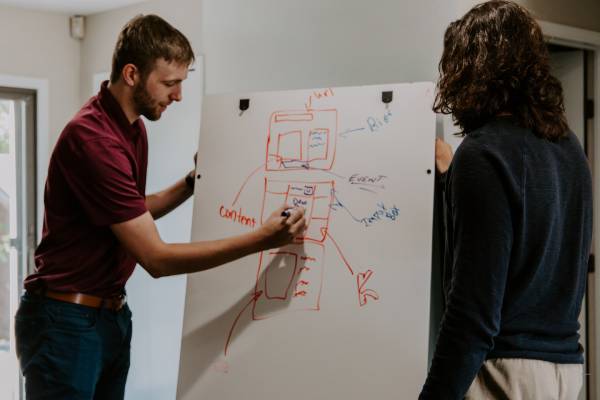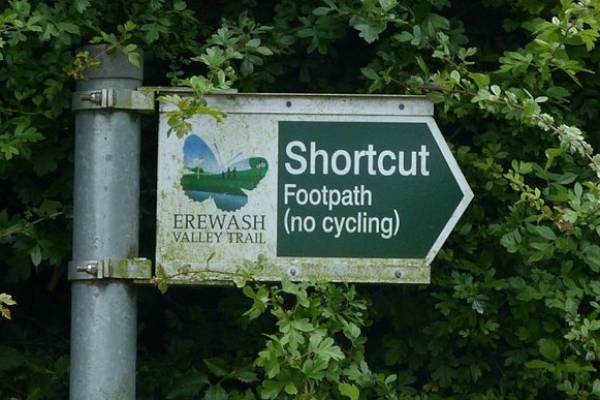
Project progress
This lesson will focus on using a variety of expressions specifically related to the progress of a project.
This lesson will help you use these idioms describing project progress. You will also get a chance to talk about your own experiences.
Can you think of a project that didn't go as planned? What happened?
Please consider each expression and match them to the images. Your instructor has an example and a question regarding each one.
- (it’s) back to the drawing board—back to the beginning of a process to start it again because it isn't working.
- make headway—make progress.
- (it’s) full speed ahead—moving with the greatest speed or energy.
- the ball's in (the client’s) court—if the ball is in someone's court, they have to do something before any progress can be made.
- cut corners—do something in a hasty or careless way so as to save time or money.
A. |
B. |
C. |
D. |
E. |
A. Complete the anecdote
Read each section and choose an appropriate idiom from the list above.
- After doing some surveys, it turns out this hypothesis is a complete failure, so...
- The project manager was inexperienced, so no progress was being made at all. When the project manager was finally replaced with a more experienced person, the project quickly began to...
- For the last week, we've been preparing while we waited for approval from the client. The team leader just received the go-ahead, so now...
- It's not Daniel's fault the deal isn't finished. He made the last offer, so...
- In business, aggressively saving money by lowering the quality of your fundamentals is not always a good idea. Over time, it may actually cost more money. So, in other words, don't...
B. Discussion
Use idioms to discuss the following topics.
- Describe a time when you went above and beyond the requirements for a project.
- Do you ever feel frustrated because a project is not going according to plan?
- What are the major obstacles to progress during a project?
—
Images:
Jim Bahn via Flickr
Kaleidico via Unsplash
Kelly Lacy via Pexels
Alan Murray-Rust via Creative Commons
Lucas Davies via Unsplash